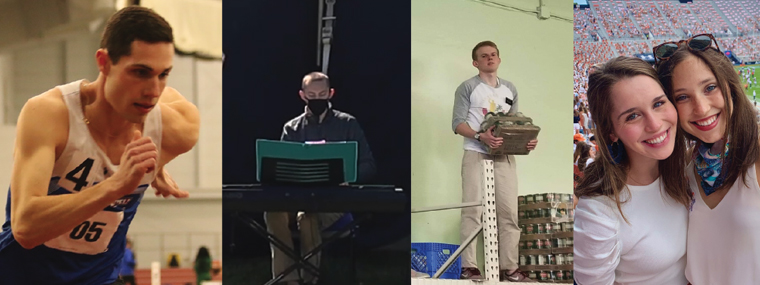
Zooming into the Future
CETA Scholarship Winners 2021–2022
By Diane M. Calabrese / Published October 2021
Productive and thoughtful, the nine CETA [Cleaning Equipment Trade Association] Scholarship 2021–2022 recipients are examples to us all. Here we introduce each of the nine scholars.
The sponsoring company listed beneath the name of each CETA Scholar is the CETA-member company that contributed to the scholarship. The end-of-text member company cited for each applicant is the manufacturer, distributor, or supplier affiliation that made the scholar an eligible applicant.
For the basics about the mechanics of the CETA Scholarship application and selection process, see the sidebar.
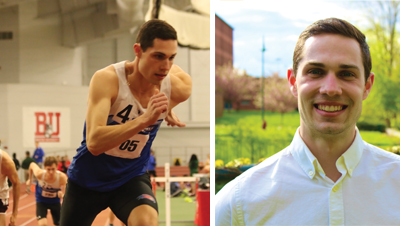 Noah Bellomo
Noah Bellomo
(Sponsoring company—Farley’s Inc. in memory of Bob Farley)
A graduate student at the UMass Lowell Francis College of Engineering, Noah Bellomo studies mechanical engineering. He says he loves being able to “spend each day making improvements, designing alterations, and increasing efficiency of various projects and systems.”
Bellomo plans to focus on either thermofluids or manufacturing. “Both subfields are driven by continuous improvement and increased efficiencies,” he explains.
“In the big picture we can work to consume less energy and decrease waste products by taking the time to solve complex problems and drive up process efficiencies,” says Bellomo. He is passionate about keeping efficiency in focus in every engineering project.
Bellomo recently found two books by Cal Newport, Digital Minimalism and Deep Work, important to his thinking. He especially appreciates Newport’s recommendation to “live an intentional, focused, and well-organized life.”
(Member company—Power Washer Sales)
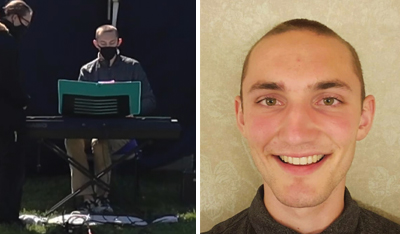 Jake Berran
Jake Berran
(Sponsoring company—Royce Industries)
Mathematics and music composition are the areas of study for Jake Berran, a sophomore at Oberlin College and Conservatory. He says that a single lecture in an introductory economics class helped inform his consideration about the future.
“We learned about ‘externalities,’ things which the market economy does not account for but which still have value—whether good or bad—for people,” explains Berran. A “free YouTube video helping hundreds of people” is an example of the good.
“The concept of external value has made me want to shape my life around how I can create the most lasting value for as many people as possible, treating the money involved as secondary as long as my needs are met,” says Berran.
(Member company—Hydra-Flex Inc.)
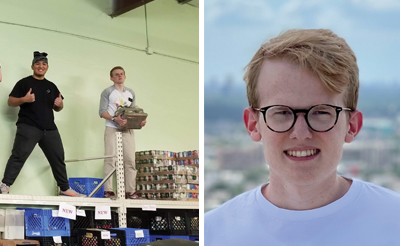 Samuel Bishop
Samuel Bishop
(Sponsoring company—CETA)
A junior at Brigham Young University, Samuel Bishop is pursuing a major in computer science, animation. Somewhat outside his major field of study, he had a recent experience that shaped his perspective.
“During the course of the last academic year, I took it upon myself to read The Brothers Karamazov,” says Bishop. “It wasn’t for a class, though I probably had been partially inspired to dive back into the classics by my wonderful experiences studying Shakespeare in the fall semester. I don’t use the term ‘life changing’ lightly, but Dostoyevsky’s work is just that.
“The characters and the lifestyles they represent mapped onto my own experiences, made me think about my prejudices and values,” continues Bishop. “I am floored by how a work of fiction can reframe my view of life in such a dramatic fashion…” and adds that he continues to “ravenously devour classical novels.”
(Member company—Kärcher NA)
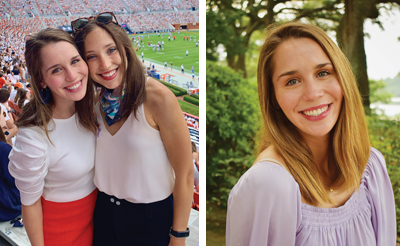 Kate Evans
Kate Evans
(Sponsoring company—Alklean Industries Inc. in memory of John Purswell Jr.)
In August, Kate Evans, a junior at Auburn University, became a student in the nursing school. She explains that her interest in joining the ranks of medical professionals is long-standing.
“Looking back over my childhood, I have always had an interest in helping others through a medical occupation,” says Evans. “I have been interested in different sectors of the medical field over the past years, but I have decided that nursing is the occupation and lifestyle for me.”
Evans says that Auburn offers opportunities to learn that are very much in keeping with her interests. At the completion of study, she hopes “to participate in medical mission trips” with the desire to use her skills to “help transform others’ lives.”
Citing the “security and compassion that nurses have shown” to her in the past, Evans explains she wants to do be the same for others. “I believe we are called to work hard but also to serve those who are in need. I feel very confident that I am called to nursing to serve my family, my patients, and those in need.”
(Member company—Evans Equipment & Environmental)
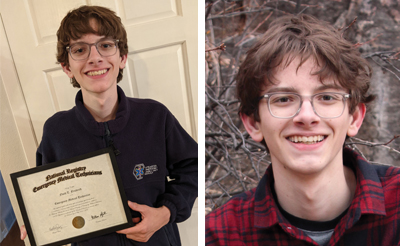 Noah Friedrich
Noah Friedrich
(Sponsoring company—Lease Consultants Corporation)
A student at Gordon College, Noah Friedrich studies biology, and he has a specific career path in mind: cytotechnology.
“Cytotechnology is the medical study of cell tissue,” explains Friedrich. It is a focus that enables researchers to identify abnormalities like cancer.
“I am motivated to choose this field because of a cellular abnormality in my body caused by the disease eosinophilic esophagitis,” says Friedrich. “As a cytotechnologist, I can help people with diseases like my own.”
On the recreational side of life, Friedrich cites rock climbing as one of his favorite activities. “When I rock climb, I typically lead climb—aka sport climb—which means that I start at the bottom of the rock and put the rope at the top. When I lead, I have no choice but to keep going until I reach the top.”
(Member company—Alkota Cleaning Systems)
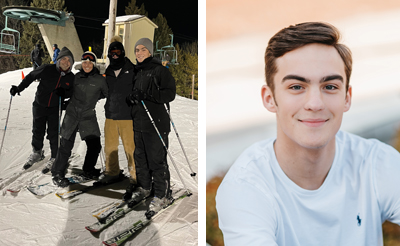 John Hill
John Hill
(Sponsoring company—Etowah Chemical Sales & Service)
Early in his business management studies at the University of Minnesota, Carlson School of Management, John Hill is still exploring options. “I have not decided on a professional path to pursue, but it is my goal to start my own company one day,” he says. “Achieving this goal would ultimately make me feel accomplished and prove the potential that I know I have.”
Hill proceeds along his path equipped with some valuable guidance. “One of my high school teachers always told students not to take anything for granted because the future is unpredictable and not guaranteed,” he explains. “I will remember this piece of advice through the rest of my educational and professional careers because it reminds me to be grateful for what I have and always live in the present.”
Outside of study, Hill enjoys running. “Running contributes to my success as a student because it gives me time to relieve stress and clear my mind,” he explains.
(Member company—General Pump)
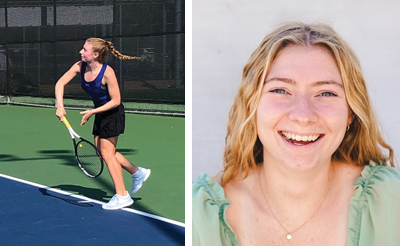 Hope Nelms
Hope Nelms
(Sponsoring company—Cleaner Times magazine)
Beginning her freshman year at Texas A&M University (College Station)—Mays Business School is Hope Nelms’s destination. She will study business marketing.
“After college, I would like to be a health marketer,” says Nelms. She wants to be connected to the healthcare industry, which fascinates her. She also wants to be able to interact and build relationships with people. The career path she envisions will allow her to do both.
Nelms says an English teacher she had in high school for both pre-AP and AP English pushed her to do her best. “Although it was difficult, she taught me how to put the best of myself in each paper, and because she was a hard woman to please, her compliments and encouragement always pushed me further than I thought possible.”
Hard work outside the classroom has always been part of the experience for Nelms, who played tennis throughout high school. Being on the team meant hours of practice, early mornings, and late nights, she explains. “Being on the team taught me the value of hard work on the court and in the classroom.”
(Member company—Action Cleaning)
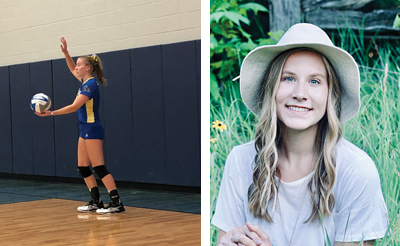 Bayleigh Peterson
Bayleigh Peterson
(Sponsoring company—Chappell Supply and Equipment Co. in memory of Blake Chappell)
University of South Dakota freshman Bayleigh Peterson will major in kinesiology with a specialization in exercise science and a minor in psychology. “For my future, I have chosen to pursue physical therapy because it is a very rewarding and gratifying career,” she explains.
“I was inspired to pursue physical therapy after participating in sports all throughout high school,” says Peterson, adding how fascinated she became by the function of muscles. She wants to be able to help people who are rehabilitating after surgery or living with health issues to meet their goals.
“For four years of high school, I participated in volleyball, basketball, track, and softball throughout the year on top of academics and engagements on my family’s farm,” says Peterson. “Being active in so many extracurricular activities required discipline and sufficient time management skills.” She values the discipline she learned.
(Member company—Alkota Cleaning Systems)
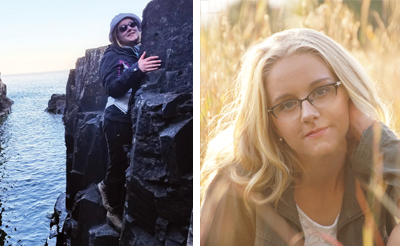 Morgan R. Witt
Morgan R. Witt
(Sponsoring company—Chappell Supply and Equipment Co.)
A senior at the College of Saint Benedict’s/Saint John’s University, Morgan R. Witt is studying biology with a minor in environmental studies. “I am still a little uncertain of what I exactly want to do, but I would like my career to be focused on ecological restoration and conservation,” she says.
Witt explains it was a high school biology class that hooked her on biology. “We studied insect species and tested the chemical levels in a nearby river.” The interplay between the composition of the species in an ecosystem and the levels of chemicals gave her a firsthand understanding of how to explore the link between cause and effect.
“Last year, I took an ecology class dedicated to studying the ecosystem of Serengeti National Park,” says Witt. She worked on a long-term research project to try to determine why zebras have stripes.
Witt has been on the rowing team since her sophomore year. She enjoys the sport, and she has learned from it how to balance her time. “I have also gained skills in being persistent that have contributed to my student success,” she explains.
(Member company—Cat Pumps)
CETA Scholarships—The Basics
The CETA Education Foundation provides scholarships to nine qualifying applicants (children of CETA members or their employees) annually. An applicant must be a full-time student for the academic year beginning with fall semester at a college, community college, technical college, university, or graduate school. Three scholarships are awarded in each of the three eligible membership classes: manufacturers, suppliers, and distributors. A ranking of applicants by an independent evaluator at an accredited university determines scholarship recipients. If a qualified applicant cannot be identified in one or more of the membership classes, one (or more) at-large scholarship(s) is awarded to the remaining applicant(s) with the highest ranking(s) regardless of his or her membership class.
CETA member companies that sponsor scholarships gain recognition. Any member company may pledge any amount for scholarships. The company is then added as a sponsor on the scholarship and recognized at all CETA meetings. Funds donated beyond those required to support nine annual scholarships are added to an endowment with the aim of creating a self-funding scholarship program.
For more details on the CETA Education Foundation, see https://ceta.org/education-foundation.

